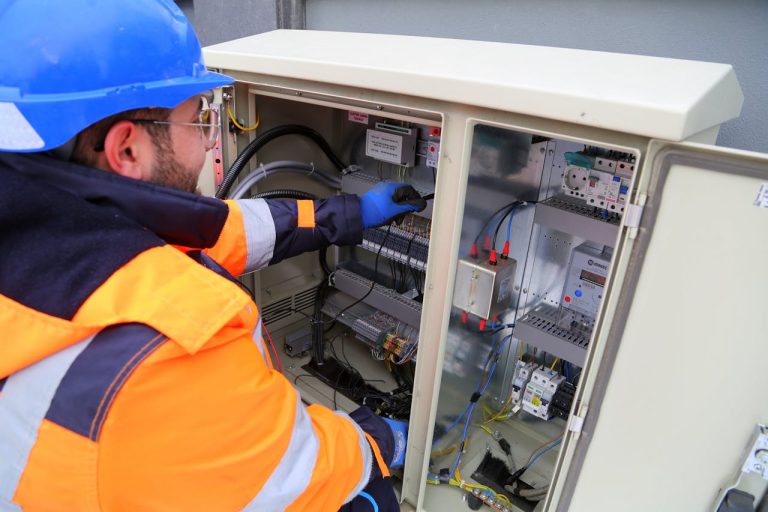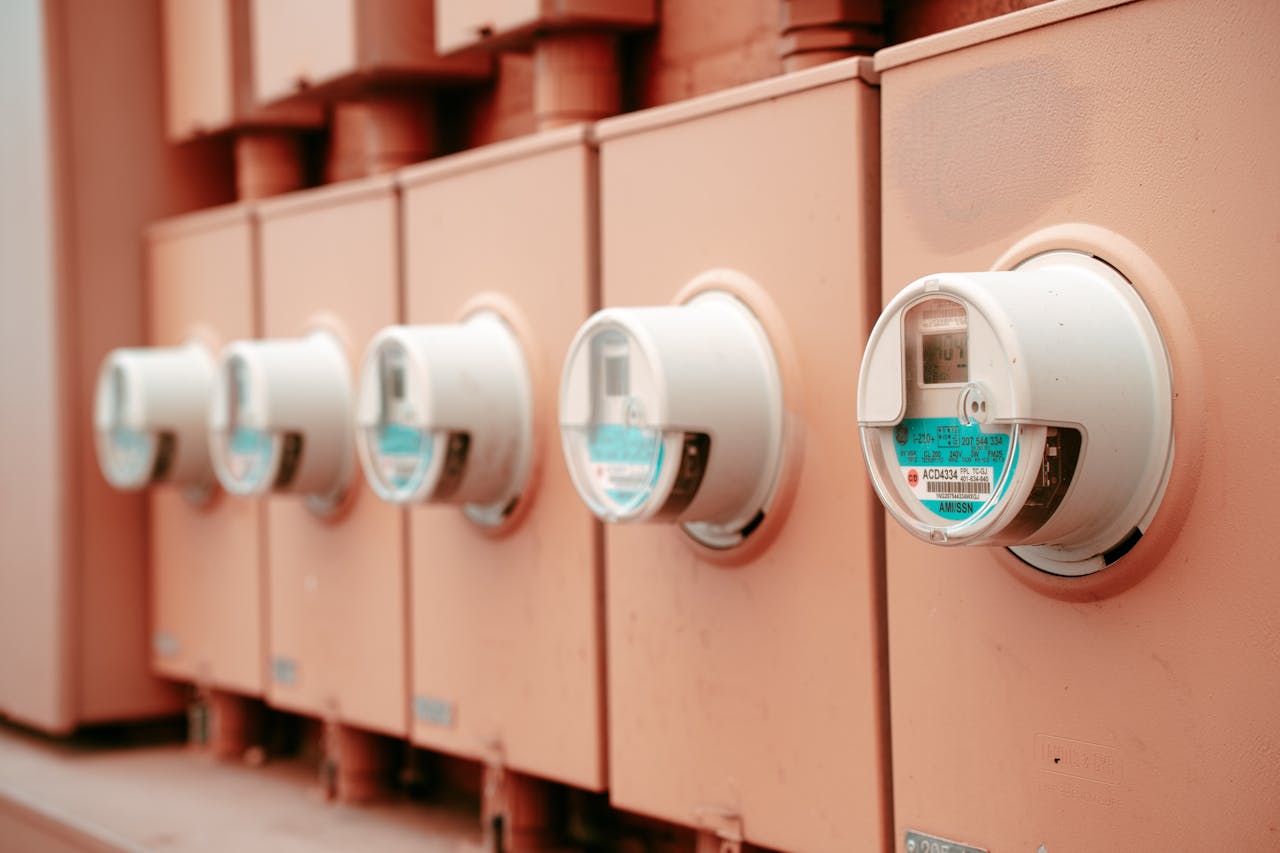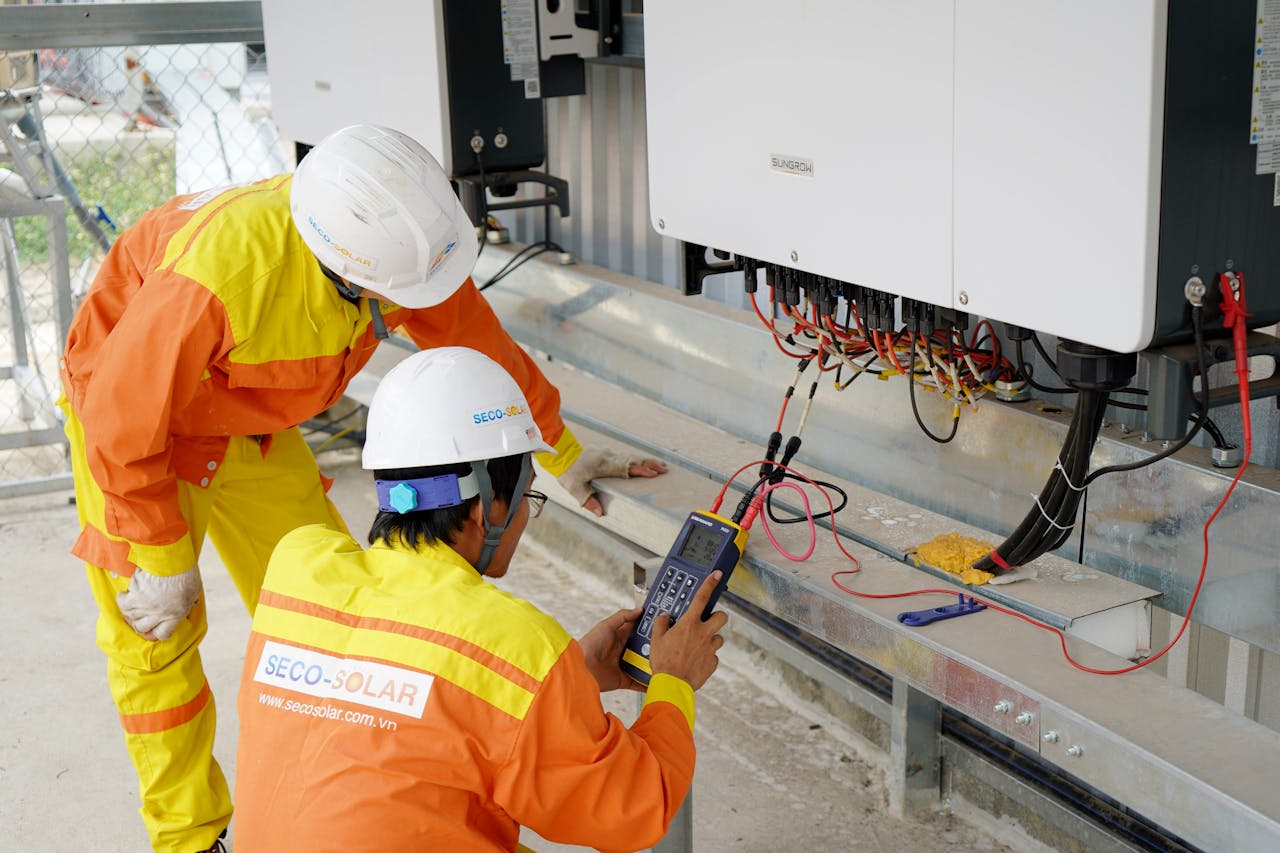Power Quality, Harmonics Mitigation and Reactive Power Management Training Course

| Date | Format | Duration | Fees (USD) | Register |
|---|---|---|---|---|
| 19 Jan - 06 Feb, 2026 | Live Online | 15 Days | $11515 | Register → |
| 02 Mar - 10 Mar, 2026 | Live Online | 7 Days | $5075 | Register → |
| 05 Apr - 09 Apr, 2026 | Live Online | 5 Days | $3785 | Register → |
| 07 Jun - 15 Jun, 2026 | Live Online | 7 Days | $5075 | Register → |
| 13 Jul - 17 Jul, 2026 | Live Online | 5 Days | $3785 | Register → |
| 21 Sep - 02 Oct, 2026 | Live Online | 10 Days | $7735 | Register → |
| 04 Oct - 06 Oct, 2026 | Live Online | 3 Days | $2625 | Register → |
| 21 Dec - 25 Dec, 2026 | Live Online | 5 Days | $3785 | Register → |
| Date | Venue | Duration | Fees (USD) | Register |
|---|---|---|---|---|
| 05 Jan - 09 Jan, 2026 | Cairo | 5 Days | $5775 | Register → |
| 24 Feb - 26 Feb, 2026 | Jeddah | 3 Days | $4680 | Register → |
| 25 May - 12 Jun, 2026 | Mumbai | 15 Days | $12525 | Register → |
| 08 Jun - 19 Jun, 2026 | Amsterdam | 10 Days | $11615 | Register → |
| 20 Jul - 24 Jul, 2026 | Dubai | 5 Days | $5775 | Register → |
| 10 Aug - 14 Aug, 2026 | Toronto | 5 Days | $6835 | Register → |
| 05 Oct - 16 Oct, 2026 | Dubai | 10 Days | $11085 | Register → |
| 23 Nov - 27 Nov, 2026 | Manchester | 5 Days | $6305 | Register → |
Did you know that power quality issues such as harmonic distortion can lead to significant equipment damage and energy losses, with studies indicating that harmonic mitigation can reduce energy consumption by up to 10% in industrial settings?
Course Overview
The Power Quality, Harmonics Mitigation and Reactive Power Management Training Course by Alpha Learning Centre is meticulously designed to equip professionals with essential skills in assessing and improving power quality, mitigating harmonics, and managing reactive power. This course focuses on how professionals can effectively implement power factor correction strategies, enhance system efficiency, and ensure compliance with international standards to ensure comprehensive power system performance.
Why Select This Training Course?
Selecting this Power Quality and Harmonics Mitigation Course offers numerous advantages for professionals involved in electrical engineering and power system management. Participants will gain advanced knowledge of power quality parameters, harmonic analysis techniques, and reactive power management strategies. The course provides hands-on experience with industry-standard power quality meters and real-world case studies, enabling attendees to optimise their power quality strategies effectively.
For organisations, investing in this training enhances overall system reliability and ensures better energy efficiency. Research indicates that implementing comprehensive power quality frameworks results in enhanced ability to prevent equipment failures and reduce energy losses. According to industry experts, power quality issues such as voltage sags and harmonic distortion can lead to significant economic losses if not properly addressed. Effective power quality management involves understanding and mitigating these issues to ensure smooth operation of electrical systems.
For individuals who complete this course, will benefit from enhanced career prospects as they become more valuable assets in their respective fields. Studies indicate that professionals with power quality expertise can significantly improve their career trajectory as the field requires understanding of both technical implementation and regulatory frameworks, while skills in harmonic mitigation and reactive power management are essential for effective power system operation.
Transform your power quality capabilities – Register now for this critical advanced training programme!
Who Should Attend?
This Power Quality, Harmonics Mitigation and Reactive Power Management Training Course is suitable for:
- Electrical Engineers in power system operations
- Facility Managers responsible for power quality
- Power System Analysts in utilities and industries
- Maintenance Engineers dealing with power equipment
- Consultants in energy efficiency and power management
What are the Training Goals?
The objectives of this course are to:
- Master power quality assessment and improvement
- Implement harmonic mitigation strategies
- Enhance reactive power management techniques
- Understand the impact of power quality on equipment
- Develop solutions for power factor correction
How will this Training Course be Presented?
The Power Quality, Harmonics Mitigation and Reactive Power Management Training Course delivers comprehensive, hands-on training through proven methodologies designed to maximise learning outcomes and practical skill development. Our expert instructors employ the following methods:
- Practical power quality measurements
- Workshops on harmonics analysis and mitigation
- Simulation of reactive power scenarios
- Expert discussions on standards and best practices
Each delivery method is carefully integrated to ensure participants gain both theoretical knowledge and practical experience. The course structure promotes active engagement and real-world application, allowing participants to develop crucial analytical and strategic skills within a supportive learning environment.
Join us to experience this dynamic and effective learning approach – Register now to secure your place!
Course Syllabus
Module 1: Power Quality Fundamentals
- Definition and parameters of power quality
- Voltage sags, swells, and interruptions
- Transient and steady-state power quality issues
- Harmonic distortion effects
- Power factor and its implications
- Load balance and symmetry
- Regulatory frameworks for power quality
Module 2: Harmonics in Power Systems
- Sources of harmonics in electrical systems
- Harmonic analysis techniques
- Effects of harmonics on equipment
- IEEE 519 standards for harmonic control
- Harmonic resonance and its prevention
- Passive and active harmonic filters
- Practical design of harmonic filters
- Case studies of harmonic issues
- Techniques for harmonic measurements
- Software tools for harmonic analysis
Module 3: Reactive Power Management
- Reactive power concepts and definitions
- Impact of reactive power on system efficiency
- Capacitor bank applications and sizing
- Synchronous condenser usage
- Static VAR compensators (SVCs) for power factor correction
- Voltage regulation through reactive power control
- Real-time reactive power management
- Economic benefits of reactive power optimization
- Operational challenges in reactive power management
Module 4: Power Quality Monitoring
- Selection of power quality meters
- Installation and configuration for monitoring
- Analysis of power quality data
- Real-time monitoring systems
- Trend analysis for power quality improvement
- Interpreting power quality events
- Compliance with monitoring standards
- Remote monitoring solutions
- Data management for power quality events
Module 5: Voltage Control and Stabilization
- Voltage regulation methods
- Automatic Voltage Regulators (AVRs)
- Voltage sags and mitigation techniques
- Overvoltage protection strategies
- Dynamic voltage restorers
- Load tap changers in transformers
- Voltage stability in distribution networks
Module 6: Power Factor Correction
- Methods of power factor correction
- Capacitor bank placement strategies
- Impact of power factor on utility billing
- Dynamic PFC solutions
Module 7: Power Quality in Industrial Settings
- Power quality issues in industrial environments
- Impact of non-linear loads on power quality
- Mitigation strategies for industrial applications
- Energy efficiency through power quality management
Module 8: Compliance and Standards
- International standards for power quality
- Local regulations affecting power quality
- Ensuring compliance with IEEE, IEC, and EN standards
- Documentation for power quality audits
Module 9: Harmonic Mitigation Techniques
- Active vs. passive filtering solutions
- Design considerations for filter installation
- Harmonic cancellation techniques
- Multi-level inverters for harmonic reduction
- Transformer derating due to harmonics
- Harmonic mitigation in renewable energy systems
Module 10: Reactive Power in Renewable Energy
- Reactive power challenges with renewables
- Grid code compliance for reactive power
- Inverter design for reactive power control
- Integration of energy storage for reactive power
Module 11: Power Quality Economics
- Cost of poor power quality
- Investment analysis for power quality solutions
- Return on investment in power quality improvements
- Incentives and penalties related to power quality
Training Impact
The impact of power quality training is evident through various real-world case studies and data, which demonstrate the effectiveness of structured programmes in enhancing system reliability and energy efficiency.
Research indicates that professionals with strong power quality skills can significantly improve operational outcomes. According to industry experts, modern power systems face increasing challenges including harmonic distortion and reactive power management, which require advanced mitigation strategies to ensure efficient operation. Effective power quality management involves understanding and addressing these challenges to prevent equipment damage and reduce energy losses.
These case studies highlight the tangible benefits of implementing advanced power quality techniques:
- Improved system reliability through effective harmonic mitigation
- Enhanced energy efficiency through reactive power management
- Increased equipment lifespan through power quality monitoring
- Strengthened compliance with international power quality standards
By investing in this advanced training, organisations can expect to see:
- Significant improvement in power system performance
- Improved ability to handle complex power quality challenges
- Enhanced decision-making capabilities in power management
- Increased competitiveness through comprehensive power quality strategies
Transform your career and organisational performance – Enrol now to master Power Quality, Harmonics Mitigation and Reactive Power Management!
FAQs
4 simple ways to register with Alpha Learning Centre (ALC):
Website:
Log on to our website www.alphalearningcentre.com. Select the course you want from the list of categories or filter through the calendar options. Click the “Register” button in the filtered results or the “Manual Registration” option on the course page. Complete the form and click submit. Telephone:
Call +971 58 102 8628 or +44 7443 559 344 to register. E-mail Us:
Send your details to [email protected]. Mobile/WhatsApp:
You can call or message us on WhatsApp at +971 58 102 8628. Believe us; we are quick to respond to.
Yes, besides English, we do deliver courses in 17 different languages which includes Arabic, French, Portuguese, Spanish—to name a few.
Our course consultants on most subjects can cover about 3 to maximum 4 modules in a classroom training format. In a live online training format, we can only cover 2 to maximum 3 modules in a day.
Our public courses generally start around 9:30am and end by 4:30pm. There are 7 contact hours per day.
Our live online courses start around 9:30am and finish by 12:30pm. There are 3 contact hours per day. The course coordinator will confirm the Timezone during course confirmation.
A valid ALC ‘Certificate of Training’ will be awarded to each participant upon successfully completing the course. Accredited certificates from HRCI, PMI, CPD, IIBA are also available upon request and additional fees.








